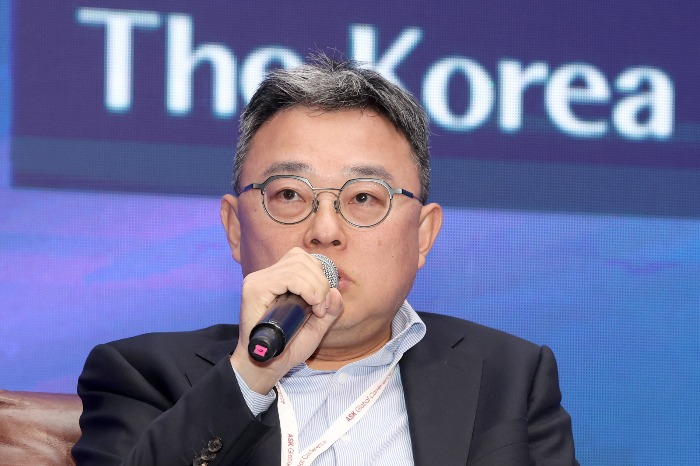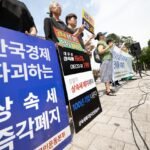
Real estate credit continues to appeal to South Korea’s major asset owners even as interest rates decline, reflecting their cautious approach to equity exposure amid rising uncertainties in the global investment landscape.
Secondary credit strategies in real estate are gaining momentum among Korean institutional investors, with target returns of 5-7% from real estate assets, their real investment heads said during a panel discussion at the global investment conference ASK 2025 on Thursday.
The Korea Investment Corp. (KIC), Teachers’ Pension and Hyundai Marine & Fire Insurance Co. plan to further diversify their real estate assets in 2026, while strengthening risk management.
By comparison, the Public Officials Benefit Association (POBA) plans to rebalance its credit-heavy real estate portfolio by increasing exposure to equity investments.
By sector and geography, the retirement fund for regional government officials, is zooming in on Europe and Australia beyond the US, while preparing to make its first foray into retail assets.
However, the four institutional investors struck a cautious tone on the office market, noting that the sector’s recovery is slower than expected.
The following are remarks made by real estate heads from the KIC, Teachers’ Pension, POBA and Hyundai Marine & Fire Insurance:

TEACHERS’ PENSION:
“We still see investment opportunities in lending, although the interest rate spread has narrowed. Lending can provide stability within real asset investments,” said Kim Jin Hwan, head of real estate and infrastructure at the pension fund.
“Secondary investments can also contribute to enhancing portfolio value.”
“Next year, it may be advantageous to pursue differentiated opportunities as long as they align with our portfolio standards.”

PUBLIC OFFICIALS BENEFIT ASSOCIATION:
“As part of a diversification, we are considering investments in Europe. The US accounts for 80% of our global real estate assets. We will collaborate with GPs who propose SMA (separately managed account) or joint venture opportunities,” said Harry Song, head of overseas real estate investment at POBA.
“We’re paying closer look at retail properties next year. Over the past two decades, we haven’t been interested in the retail sector and currently, our portfolio holds no retail assets. We’re now preparing to make our first moves in this space.”
“We will gradually increase our equity exposure. From a global perspective, Australia appears to be one of the most attractive markets.”
“So far this year, we’ve made nine new real estate investments, including a REIT and are on track to complete a total of 11 by year-end. Of the nine executed deals, seven have been loan investments, while two were equity-based.”
“Next year, we expect to rebalance our equity and loan investments to a 50:50 ratio, up from the current 40:70. For portfolio diversification, we prefer sector-focused funds such as those targeting senior housing over blind pool structures.”

HYUNDAI MARINE & FIRE INSURANCE:
“Real estate credit appears to be one of the most suitable investment options. Yields remain at attractive levels,” said Jeon Kyung Cheol, senior vice president at the insurer.
“We’ll continue focusing on credit investments next year. Open-ended credit and secondary strategies are attractive.”
“As secondary strategies continue to expand within the credit space, real estate will follow a similar trajectory, with the secondary market playing a growing role.”
“Rather than targeting discounted entry yields, secondary strategies will depend on effective post-acquisition management to drive value creation.”
“In secondary credit markets, however, there’s a risk that older distressed assets remain, as prime assets are often picked up first. That’s why it’s important to partner with experienced management firms with a proven track record.
“Equity investments require careful consideration. Even if interest rates decline, it’s uncertain whether equities will deliver high returns. In real estate, the recovery trajectory remains difficult to assess.”
“When allocating to blind pool funds, we will invest primarily through flagship funds, which tend to deliver more stable returns than niche market funds.”

KOREA INVESTMENT CORP:
“KIC’s new allocation will aim to diversify its portfolio, with an emphasis on mitigating risks to reduce performance volatility,” said Thomas Cho, head of real estate at the sovereign wealth fund.















